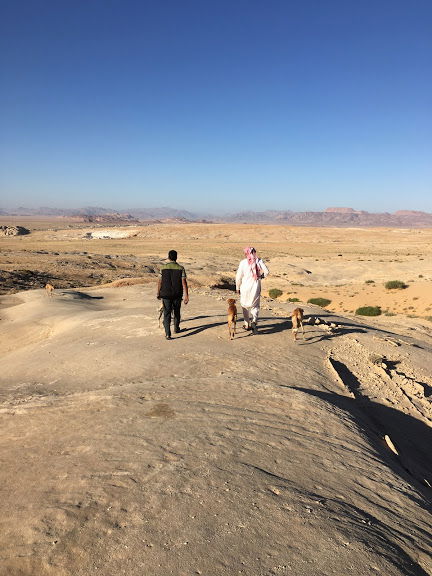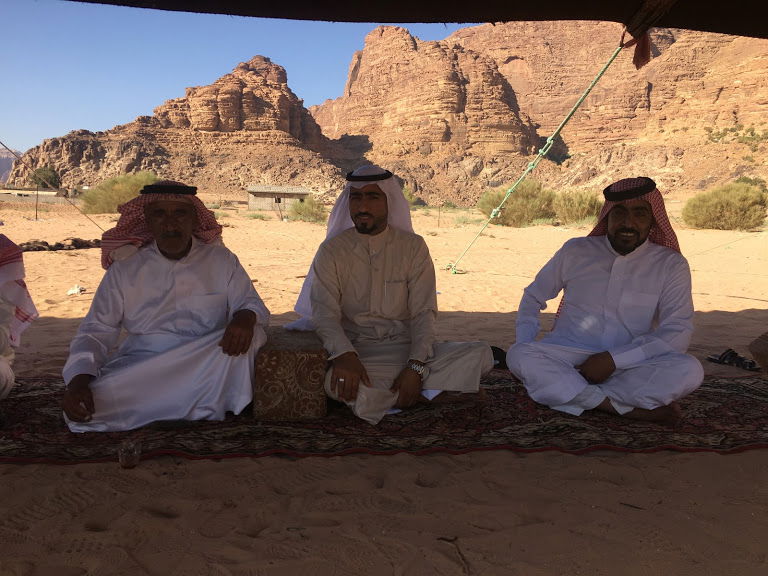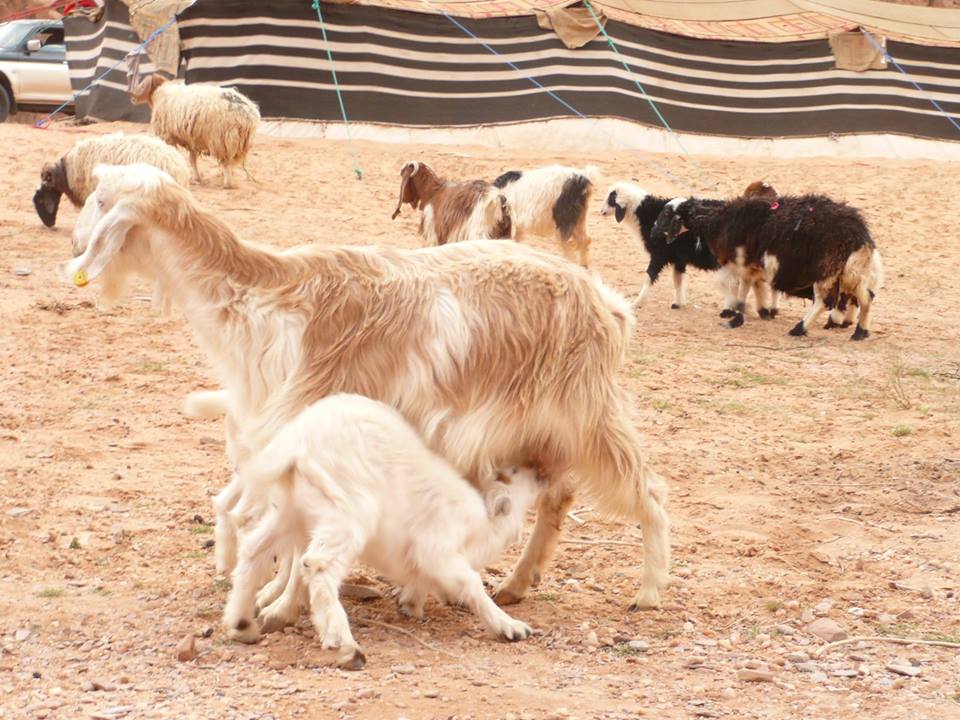Traditional Life Revival Project

Tourism has the particularity to endanger or even sometimes destroy what has attracted it on a specific place. Wadi Rum is a relevant example of this phenomenon: leaving their ancestral lifestyle based on the sheep and goats breeding as well as their traditional habitat, the goat hair tent, the Bedouin communities have turned their activity to tourism services, selling rides and accommodation facilities to visitors. The revenues generated by tourism quickly started surpassing those generated by the traditional economy, while with less efforts. The outcome of such modifications in their activities is that the traditional life style became a folkloric attraction from which they slowly but surely step away. Except some aged people keeping a semi nomadic lifestyle, the Bedouin families live now in brick house in the village. Depending only on tourism, their economic model became vulnerable to circumstances, without diversification.
Conscious of the loss of the cultural heritage and the threat to the community, a Wadi Rum community influential member proposes to reverse the current trend and to create through tourism an incentive and encouragement to families for recovering their traditional life style, to foster them to regain their traditional habitat and pastoral economy. He proposes to travelers who search a total escape an authentic immersion in the desert life with a family living under tent in a remote area of Wadi Rum. The experience will induce for the hosting family not only with an economical asset but also an awareness about the importance of the ancestral heritage and the necessity to perpetuate and transmit it to the next generation, while also diversifying the economical model.
This project implies the visitor to spend a relatively substantial period of time with the family and to be part of it. It is not a one or two days tourist experience, but a longer stay during which he or she will effectively integrate the Bedouin life and conditions. Considered as a member of the family, the visitor will participate to all the domestic and pastoral tasks, and will be fully integrated in social interactions and events.
For further information, please contact us.
 |  |
 |  |
 | |